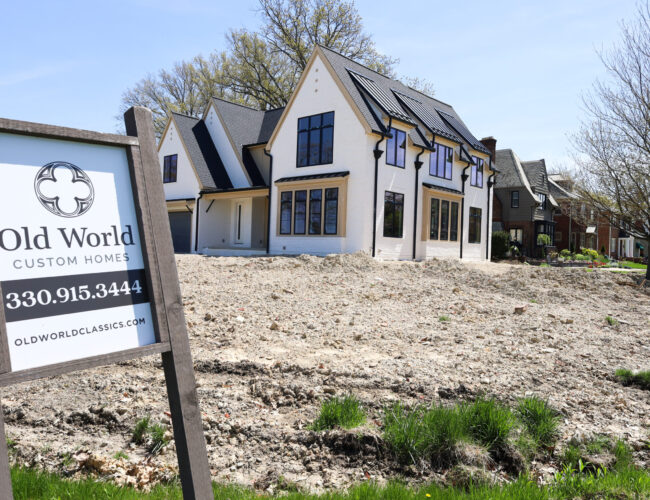
Finding Your Ideal Piece of Land: 7 Things to Consider
You've found this exciting new piece of land. Now you might be wondering, 'What's next?'
by Sara Van Newkirk July 26, 2024Congratulations on finding the perfect piece of land! We know your mind might be racing with concerns about potential issues, but don’t worry— our construction experts are here to guide you. Here are the top seven things we consider when helping clients purchase their lot, ensuring you make an informed decision:
1.) Building Setback
A scenic drive through the woods is charming, but the costs of constructing a long driveway and extending utilities can add up quickly. For setbacks beyond 250 feet, upgrades to the electric service may be required, potentially increasing costs. Our team can help you evaluate these expenses and find the best solutions.
2.) Permit Costs
Permit fees can vary significantly between municipalities and counties. Building within city limits or areas with public utilities often comes with higher permit costs compared to county permits. We'll assist you in contacting local zoning and building departments to estimate these fees, which can be included as allowances in your construction loan.
3.) Utilities
Understanding available utilities is crucial for an accurate quote. If your lot is outside a newer residential community, check with local utility companies to confirm service availability.
-
- Sewer: Determine if your lot has access to the city or county sewer or requires a septic system. We install many septic systems annually and can guide you on the best options.
- Water: Check if your lot has city water or needs a well. For well water, reviewing neighboring well logs can provide insights into water availability and drilling depths.
- Natural Gas: If gas service isn't available, alternatives like propane or geothermal can be considered.
- Electric: In rural areas or newly subdivided lots, an electric service upgrade might be necessary, with costs ranging from $5,000 to $25,000. We can help you navigate these requirements.
4.) Soil Quality
Before purchasing, include a due diligence period to investigate soil quality. Two types of tests are essential: geotechnical testing for soil bearing capacity and water absorption tests for septic suitability. These tests are crucial for ensuring your lot can support your new home.
5.) Zoning and Regulations
Familiarize yourself with zoning regulations and local ordinances, including restrictions on land use, building heights, and setbacks. Check for any architectural requirements from the city or homeowners’ association that could impact your plans.
6.) Survey and Title Search
A title search will identify any tax liens or easements on the property. For older lots, a pin survey may be necessary to reestablish property boundaries. This provides peace of mind, ensuring you know exactly where your property lines are.
7.) Environmental Factors
Investigate whether the property includes flood zones or wetlands. Our experience in handling these issues allows us to connect you with the right experts to ensure your land is suitable for building.
Purchasing a lot involves many considerations, but our expert team is here to help. With extensive experience building throughout Ohio, we can guide you through every step of your land purchase. Schedule a call with us today to get detailed answers to your land questions!
In Need of Inspiration?
Follow us on Instagram!
Feature Homes
Home Spotlight: Modern French Country Home in Northeast, Ohio
This 3,927 sq. ft. Modern French Country home is filled with details that reflect thoughtful craftsmanship. From handcrafted Amish cabinetry to custom millwork and beautiful tilework, every inch...
June 5, 2025 Read More
Feature Homes
Renovation Home Spotlight
This Chagrin Falls renovation project focused on refreshing the main floor, especially the kitchen and living areas, to better reflect the way the homeowners live...


